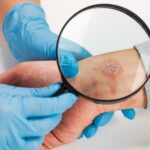
Dental X-rays are a common part of routine check-ups. You want to ensure that your teeth and gums stay healthy. So, are these X-rays safe and necessary? Many patients have concerns about radiation exposure. However, the benefits outweigh the risks. X-rays help your dentist identify problems that are not visible to the naked eye. Early detection can prevent more serious issues. For instance, cavities, abscesses, and impacted teeth can be spotted sooner. Your dentist in Mt Vernon, NY, uses modern equipment that limits radiation. The exposure is minimal, comparable to daily natural sources like the sun. These safety measures ensure your well-being. You might wonder if you can skip X-rays altogether. Yet, they are crucial for a thorough dental examination. Regular X-rays lead to better long-term care. You deserve a healthy smile without unnecessary worry. The reassurance of modern dental practices allows peace of mind.
Understanding Dental X-Rays
Dental X-rays are an essential tool for detecting oral health issues early. They allow your dentist to see beyond the surface, revealing problems that are not visible during a regular exam. Without X-rays, some conditions could go unnoticed until they develop into more severe problems.
How Do Dental X-Rays Work?
Dental X-rays use a small amount of radiation to create images of the interior of your teeth and gums. These images help your dentist assess the health of your mouth. The process is quick and painless, typically completed within a few minutes during your dental visit.
Types of Dental X-Rays
Different X-rays serve different purposes. Here are the main types used in dental practices:
- Bitewing X-rays: Show the crowns of your upper and lower teeth. They help identify cavities between teeth.
- Periapical X-rays: Highlight the entire tooth, from crown to root. They are useful for detecting issues below the gum line.
- Panoramic X-rays: Capture the whole mouth in one image. They are used to spot wisdom teeth, jaw disorders, and other oral abnormalities.
Safety of Dental X-Rays
Concerns about radiation exposure are common. However, dental X-rays use very low levels of radiation, making them safe for both children and adults. Dentists follow strict guidelines to minimize exposure and maximize safety. Protective measures include lead aprons and thyroid collars to shield your body.
| Source | Radiation (millisieverts) |
|---|---|
| Single Dental X-ray | 0.005 |
| Chest X-ray | 0.1 |
| Daily Natural Background Radiation | 0.01 |
Why Are Dental X-Rays Necessary?
Regular X-rays are vital for maintaining oral health. They help in:
- Identifying early signs of tooth decay.
- Detecting gum disease progression.
- Assessing the health of developing teeth in children.
Skipping X-rays could result in untreated dental issues, leading to discomfort, pain, or more extensive treatments later.
When Should You Get Dental X-Rays?
The frequency of dental X-rays depends on your specific needs. Factors include age, oral health, and risk for dental diseases. Generally, adults with good oral health may need X-rays every two years. Children may need them more often to monitor growth and development. Consult your dentist for a personalized schedule.
Precautions and Recommendations
To ensure safety, dentists adhere to the principle of keeping radiation exposure as low as reasonably achievable. The Centers for Disease Control and Prevention (CDC) and the Food and Drug Administration (FDA) provide guidelines and recommendations for dental X-ray practices. These guidelines help dentists make informed decisions about the necessity and frequency of X-rays.
Conclusion
Dental X-rays are a safe and necessary part of dental care. They play a crucial role in detecting oral health problems early. The benefits, such as preventing serious dental issues and maintaining a healthy mouth, outweigh the minimal risks. Your dentist’s use of modern, low-radiation equipment ensures a safe experience. Regular consultations with your dentist will determine the appropriate frequency for your X-rays, keeping your oral health in check. By understanding the importance and safety of dental X-rays, you can make informed decisions about your dental care, leading to a healthier smile for years to come.







